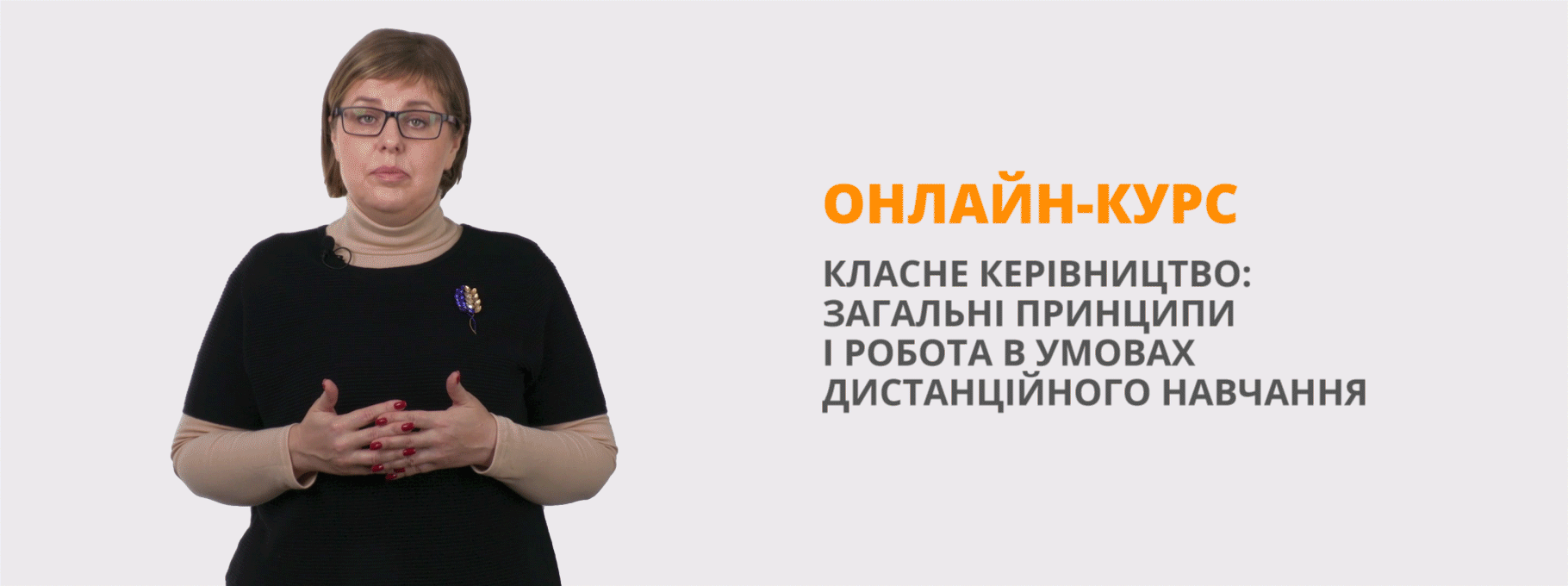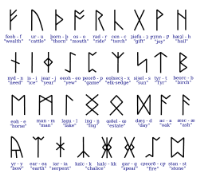Урок "Періоди у англійській літературі"
Розробка уроку з предмету Англійська література (варіативна складова) за темою «Періоди у англійській літературі» містять теоретичний та практичний матеріал необхідний до уроку. У розробці надано повний обсяг матеріалу для читання (включаючи поетичні твори та уривки прози), вправи на опрацювання теоретичного матеріалу, а також практичні завдання до автентичного матеріалу (уривки прозових творів, поезія). Кожна розробка містить ключі до завдань та коментар для вчителя.
The Forming of the English Literature. The Anglo-Saxon Period.
The Title of the Lesson: The Forming of the English Literature. Periods.“Beowulf” – One of the First Epic Poems in English Literature.
Objectives: to tell about the time the first works in English literature appeared, the periods in English literature and introduce the pupils to one of the first epic poems “Beowulf”; to introduce the pupils to the genre of the epic poem, to learn and practice new vocabulary, do listening and reading comprehension activities; compare the periods in brief; increase verbal communicative skills; to introduce the pupils to Beowulf's original language, Old English.
Skills: to hone pupils’ critical reading and thinking skills, collaborative work, public speaking skills, develop pupils’ skills effectively in literacy and information and communications technology (ICT), research skills.
The Procedure of the Lesson
- Lead-in.
- Brainstorming.
Students are asked to brainstorm on the names of writers and poets of the English literature.
What names occur to you when you think of the English literature? Have you read any works of English literature? Did you like them? Do you have your favourite author?
- Introducing the Vocabulary.
Match the words with their definitions:
- to comprise a) very powerful and impressive and often frightening;
- a novel b) to prepare land for growing crops;
- to carve c) a man with a high social rank;
- a foundation-stone d) a piece of land almost completely surrounded by
water but joined to a large area of land;
- a scribe e) to consist of particular parts, groups;
- formidable f) the ideas, facts that form the base from which
something else develops;
- peninsula g) an angry and often violent quarrel between two
people;
- to till h) to cut a sign or letter on the surface of something;
- an earl i) a long written story in which the characters and
events are usually imaginary;
- a knight j) someone whose job was to make written copies
- benefit k) an advantage, improvement or help that you get from
something;
- feuds l) a man with a high rank in the past who was trained to
fight while riding a horse;
Now match them with their Ukrainian equivalents:
|
користь тривала ворожнеча писар обробляти лицар роман користь охоплювати вирізьблювати, висікати страшний, непереборний граф півострів |
- Activities and Instructional Procedures.
- Introducing students to the lecture.
Write down a question or questions the answers to which you’d like to get after you have listened to the lecture. Read aloud your questions.
The Text of the Lecture:
The term English literature refers to literature written in the English language, including literature composed in English by writers not necessarily from England. Joseph Conrad was born in Poland, Robert Burns was Scottish, James Joyce was Irish, Edgar Allan Poe was American.
So, when and how did the English literature begin to form? The first works in English, written in Old English, appeared in the early Middle Ages. But oral epic poems existed much earlier, at the time of the ancient Britons. Many hundred years ago (about the 4th century before our era), the country we now call England was known as Britain, and people who lived there were Britons. They belonged to the Celtic race and the language they spoke was Celtic. Like all the ancient peoples the Celts made up many legends about their heroes and gods. They were written down in the Middle Ages but they describe far older times. The chroniclers and writers translated the Celtic legends into Modern English and called them the Celtic Sagas.
There exist certain periods in English literature – beginning with the first literary works up to the present day prose and poetry.
Old English Literature comprises Celtic sagas and works of the Anglo-Saxon period. This period lasted from the 6th century B.C. till the 11th century A.D.
Middle English Literature. Lasted from the 12th century until the 1470s when the Chancery Standard, a form of London-based English, became widespread. Comprises the literature of the Norman Period, the literature of the 14th and 15th centuries.
Renaissance Literature. The period lasts from 1476 up to the 17th century. Comprises Elizabethan Era, Jacobean literature and Cromwellian literature. William Shakespeare stands out in this period as a poet and playwright as yet unsurpassed.
Enlightenment or Restoration Period. The second half of the 17th and the 18th century. The period saw the transition from poetry and heroic age of Shakespeare to the prosaic age of essayists.
Romanticism. Begins with the fall of the Bastille (1789) in France up to the end of the 19th century. It was the movement against the progress of the bourgeois civilization.
Critical Realism or Victorian Literature. It was the Victorian era (1837-1901) that the novel became the leading form of literature in English.
Literature of the 20th century. Modernism and Post-Modern Literature. The beginning of the 20th century up to the present time. Comprises works of the 1917-1930s, the post-war literature and post-modern literature.
By the time the Anglo-Saxons conquered Britains, they already had letters of their own called “runes” which they carved on stone and wood.
The runic alphabet used to write Old English before the introduction of the Latin alphabet.
But they had no written language yet, and the stories and poems they made up had to be memorized. These stories, poems and legends were brought by the Anglo-Saxons to Britain. The beautiful Anglo-Saxon epic poem Beowulf reached our days may be called the foundation-stone of all British poetry. The epic is generally defined as a long narrative poem on a great and serious subject, related in an elevated style, and centered on a heroic or quasi-divine figure on whose actions depends the fate of a tribe, a nation, or the human race. The traditional epics were shaped by a literary artist from historical and legendary materials which had developed in the oral traditions of his nation during a period of expansion and warfare. The poem was composed by an unknown author and was written in the 10th century by an unknown scribe. The book is divided into two main parts with Beowulf battling a formidable “monster” in each one. The scene is set among the Geats who lived on the southern coast of the Scandinavian peninsula and the Danes, their neighbours across the strait. The people were divided into two classes: free peasants and warriors. The kings were chosen by the people, they were called “folk-kings”. The safety of the people depended on the warriors. The peasants tilled the soil and served the fighting men. There were several ranks of warriors: the folk-king, the liegemen – the “earls” and “knights”. Beowulf is a young knight who fights not for his own glory, but for the benefit of his people. His unselfish way in protecting people makes him worthy to be folk-king. The merit of the poem lies in:
- the vivid description of the life of that period;
- much of the book is didactic;
- it presents the roles and place of women in the society of that time;
- with the existence of monsters, feuds we are presented with subsequent attitudes toward life, death and material possessions;
- it shows the importance of leaders and their part in the destiny of their people;
- it shows how men dealt with the emotions of anger, revenge, fear and it shows the existence of almost continual feuds that seem similar to those between some nations and people today.
We’ll speak about the plot of the poem and some of the issues in details on the next lesson.
- Asking if the pupils got the answers to the questions they wrote before listening to the lecture. They read out their question and try to give the answer with the help of the teacher.
e.g. How many periods do there exist in English literature?
What is the period of the 20th century called?
Why do we speak about “Beowulf” exactly?
What is the importance of this work?
- Vocabulary Practice.
Fill in the correct word from the list below. There are some extra words which you do not need to use. Try not to look in the text for the answers:
|
Chroniclers to comprise essayists a novel to carve the foundation-stone a scribe formidable benefit feuds benefit to till |
- The period…………………….works of the 20th century.
- To fight for the………………….of people.
- “runes” were………………………on stone and wood.
- Beowulf is called the……………………of the British poetry
- The poem is written by an unknown……………………….
- Beowulf battles a………………….monster in each part.
- The peasants………………….the soil.
- The poem shows the existence of continual…………………..
- The……………..became the leading form of literature in the Victorian age.
- Reading Comprehension.
Read some facts about the periods in English literature. For questions 1-7 choose the periods A-G.
A – Old English Literature
B – The Middle English Literature
C – The Renaissance Period
D – The Enlightenment
E – The Romanticism
F – The Critical Realism
G – Modernism and Post-Modernism
- What is the era of William Shakespeare called? _____
- The novel is the leading form in this period. _____
- “Beowulf” is the brightest work of this period. _____
- The period in which Agatha Christie, Graham Greene, James Aldridge created their works. _____
- The era of the prosaic essayists. _____
- The period in which the writers protested against the bourgeois civilization. ______
- This period lasted until the London-based English became wide-spread. _____
- Small Groups Assignment.
In groups of 6 read the lecture and work out the answers to the questions your group gets. Then tell your answers to the class.
Group 1. 1) When did the first written works in English literature appear?
2) What were people who lived on the territory of nowadays Britain in the 6thcent.
A.D. called?
Group 2. 1) What were the first oral literary works called? How did they appear?
2) What is the impact of the Anglo-Saxons on the British culture?
Group 3. 1) When was Beowulf composed and written?
2) What is the poem about?
Group 4. 1) What can we learn about the way the society of that time was built up?
2) What is the merit of the poem?
III. Follow-up.
- Make a Concept Web that lists everything you associate with the Anglo-Saxon Period: its language, social order, historical facts, proper names, traditions etc.
- Look at the words written in Old English of the Anglo-Saxon Period. Can you recognize them? Try to give the Modern English equivalents for each of the words.
Hwæt
Cyninga
Þæt wæs god cyning!
Fæder
Todæg
Forgyf
Try to read them. What language, if any, can you hear in these words?
Homework: 1. Be ready to explain the meaning of the words from task I.2. in English. 2. Read the lecture and be ready to speak about the key issues.3. Interactive Parent/Student task: ask your parent about what his/her favourite English writer or book is and be ready to tell some words about it. 4. Find the examples of epic poems in English literature and a brief overview on one of them. Be ready to share your findings to the class and tell some words about one of the epic poems on your choice.
The Keys:
Task II.3. 1) comprises 2) benefit 3) carved 4) foundation-stone 5) scribe 6) formidable 7) till 8) feuds 9) novel
Task III.2. 1) what 2) kings 3) “That was good king!” 4) father 5) today 6) forgive


про публікацію авторської розробки
Додати розробку

